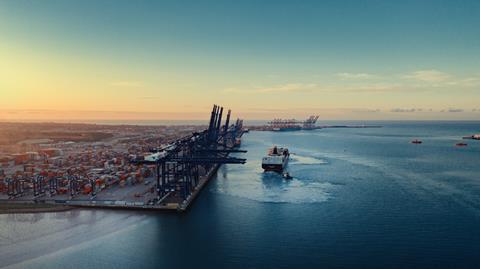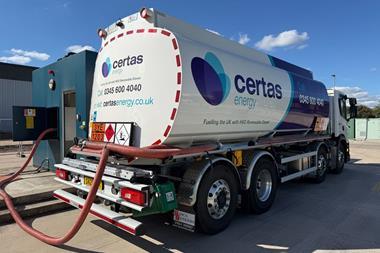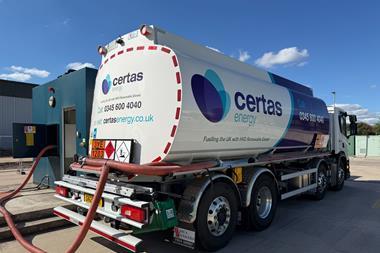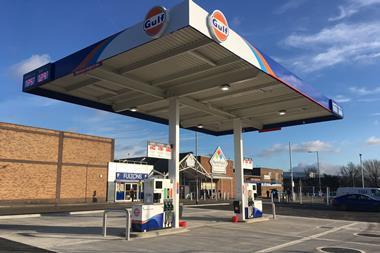
Certas Energy has acquired Haven Service Station at the Port of Felixstowe in a continuation of its programme of investment into UK logistics and haulage infrastructure.
As Britain’s biggest and busiest container port, Felixstowe handles more than four million TEUs (twenty-foot equivalent units) a year. Haven Service Station is uniquely situated within the perimeter of the port, making it an essential HGV refuelling location.
Certas Energy has committed to an extensive redevelopment of the site that will follow the blueprint set by its state-of-the-art facility at the Port of Southampton, which opened in 2020.
The improvements are designed to help boost productivity and enhance driver conditions after a challenging period for the logistics industry. These include the installation of high-speed pumps that dispense up to 120 litres per minute, as well as cashless payment terminals at every pump, so drivers do not lose time refuelling and can get back on the road faster.
Richard Billington, director of roadside services at Certas Energy, commented: “The Covid-19 pandemic revealed just how heavily the UK relies on the haulage and logistics industries. Certas Energy is incredibly proud to be investing in UK infrastructure over the long term, in the face of ongoing logistics and supply chain challenges.
“Our expanding roadside services network sets the standard for driver facilities, and the modernisation of the Haven site will provide a safer, easier and more seamless experience for drivers to refuel.
“Alongside the Port of Southampton and the iconic Hollies truckstop, Haven Service Station will become a new flagship site, designed to support the current and future needs of the container logistics sector.”
As well as the essential offering of diesel and AdBlue, Haven will also offer cleaner-burning drop-in diesel alternatives such as hydrotreated vegetable oil (HVO) and Shell GTL Fuel to lead its customers through the energy transition and helping fleet managers get ready for Net Zero Carbon 2050.

































No comments yet